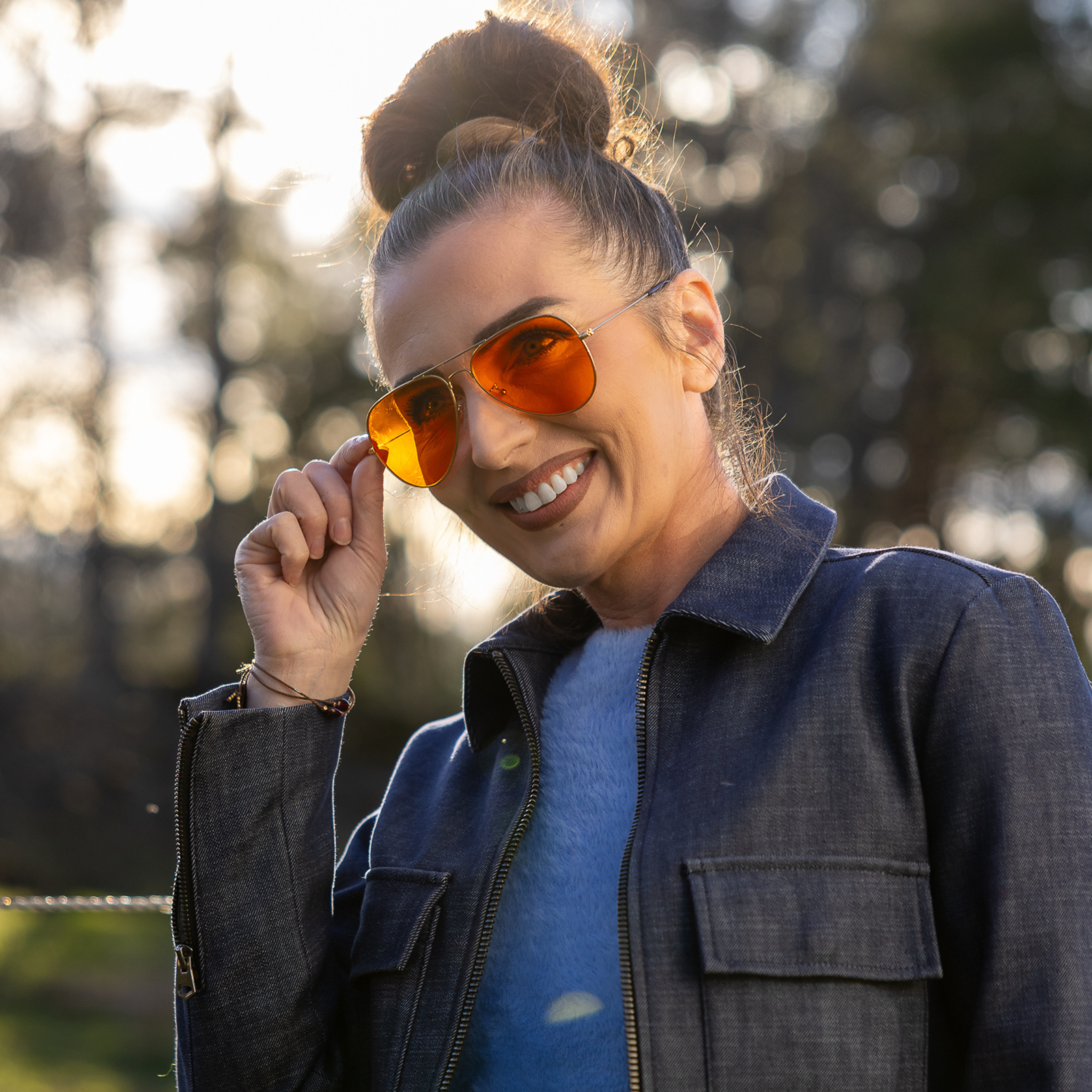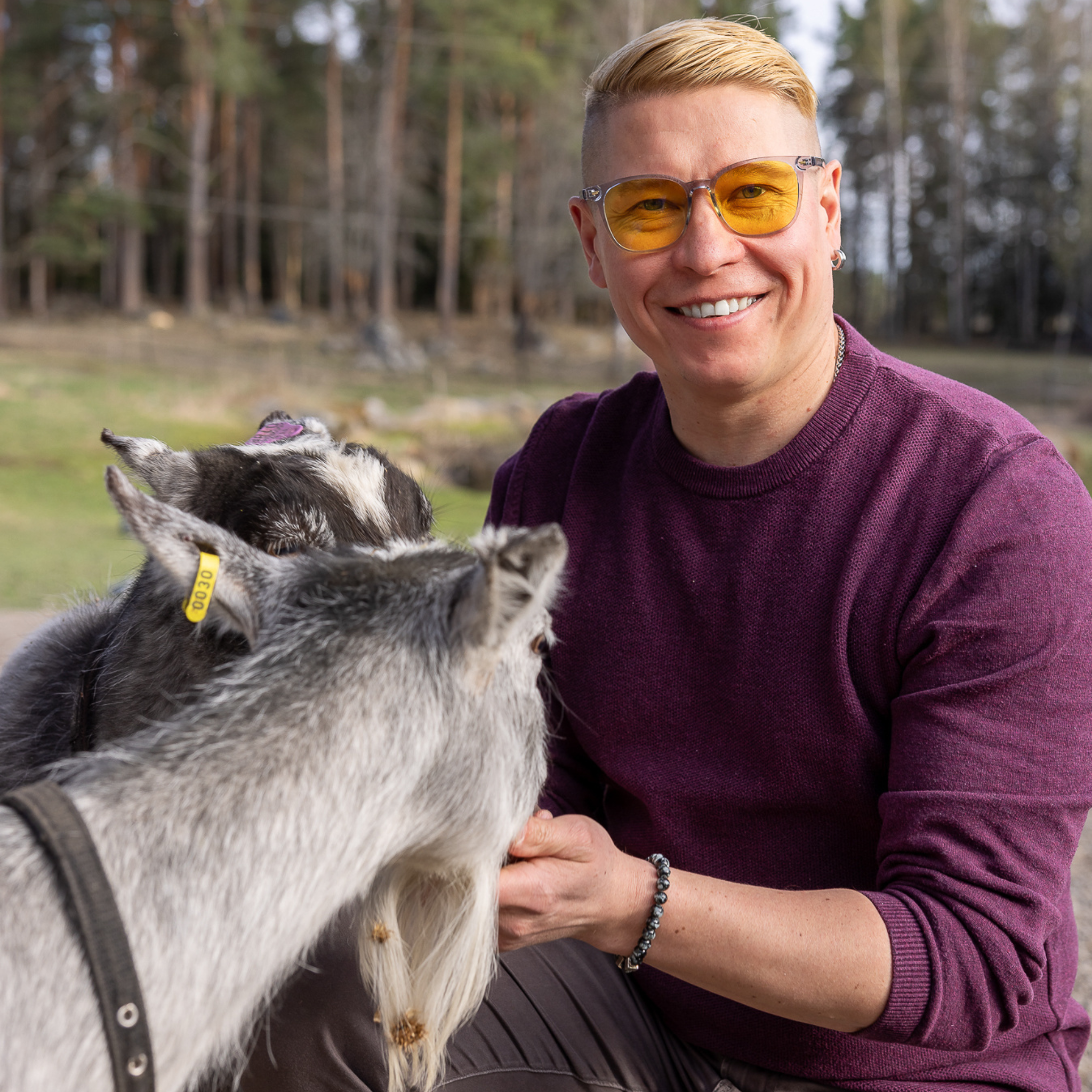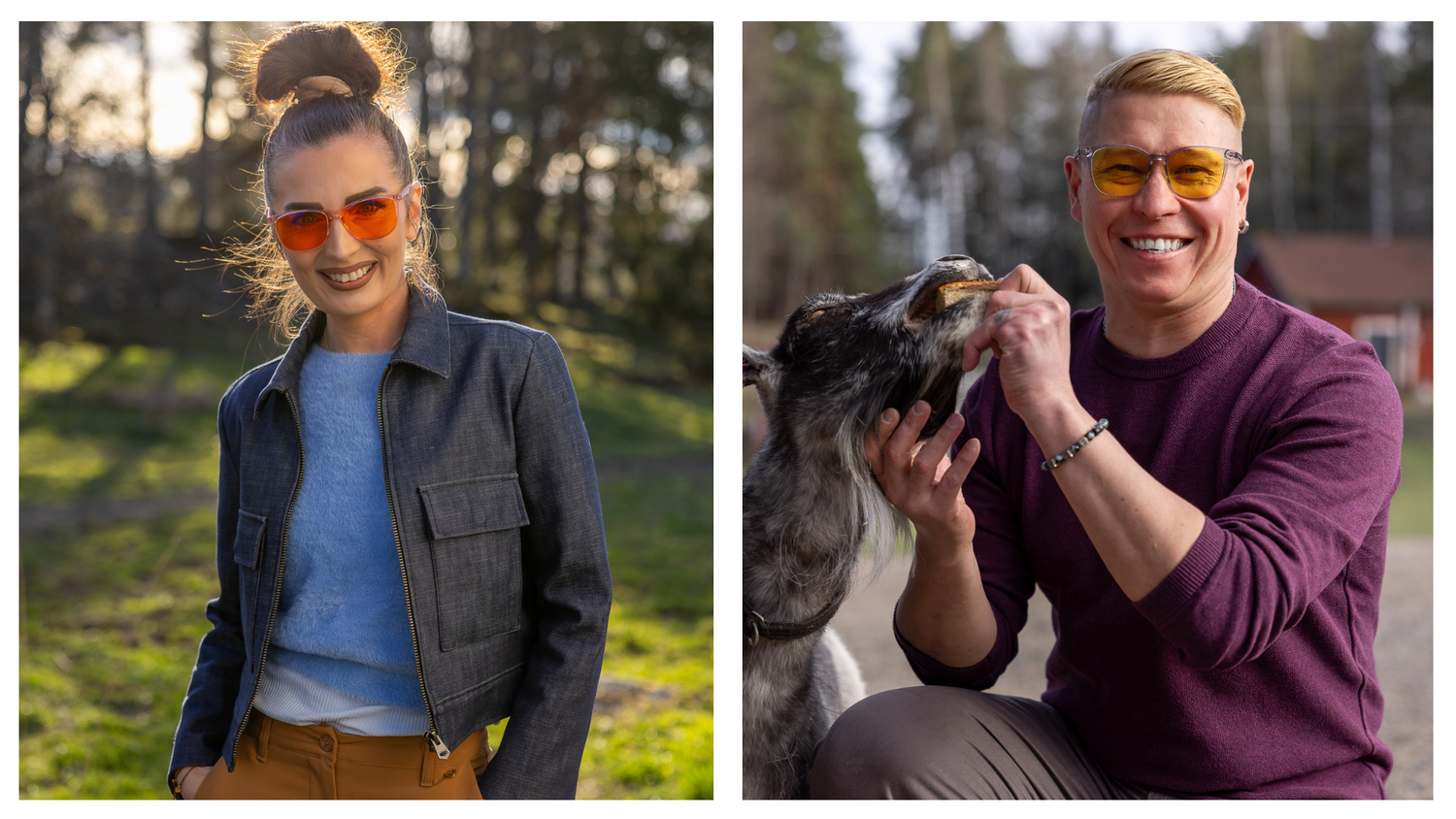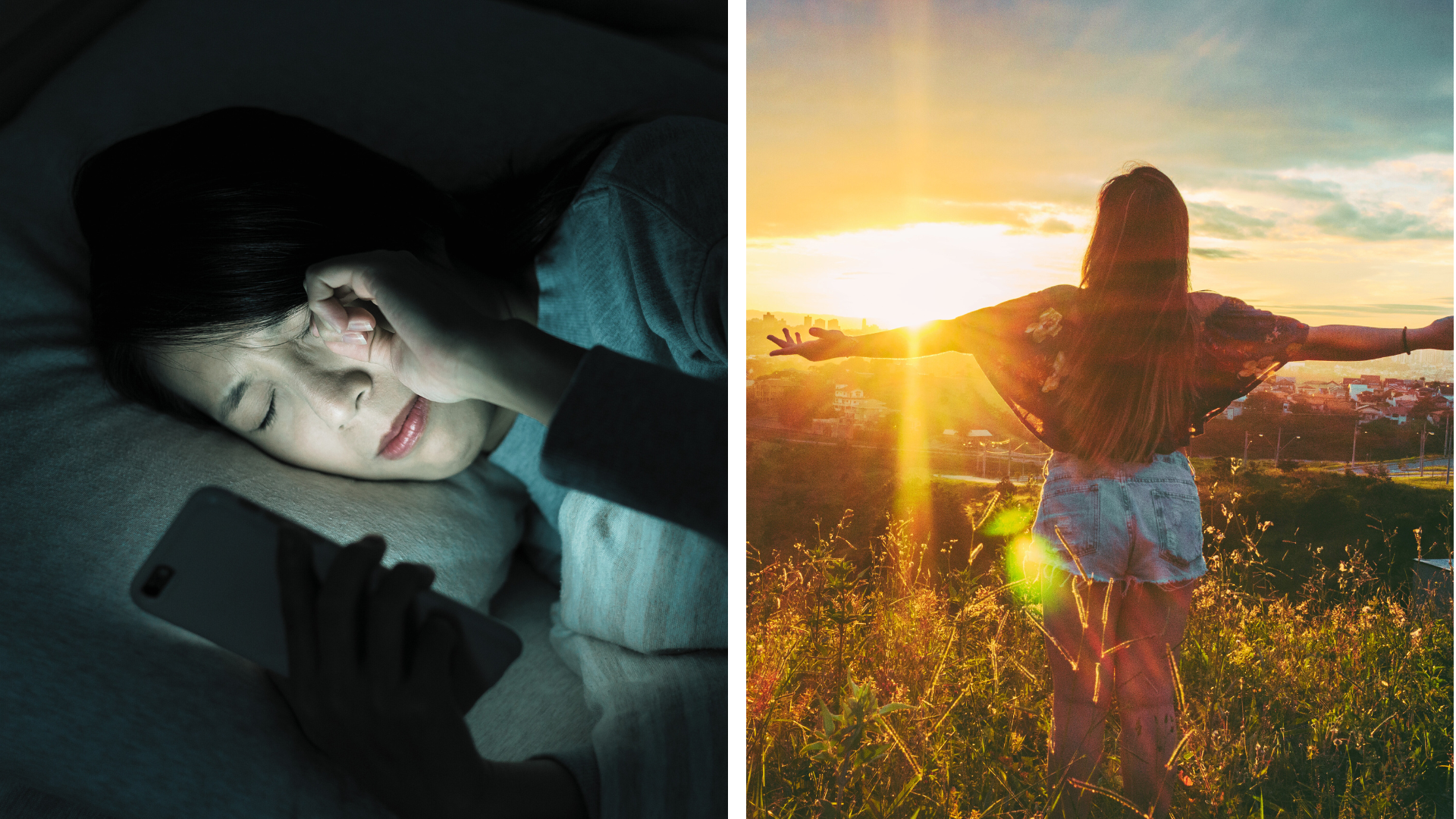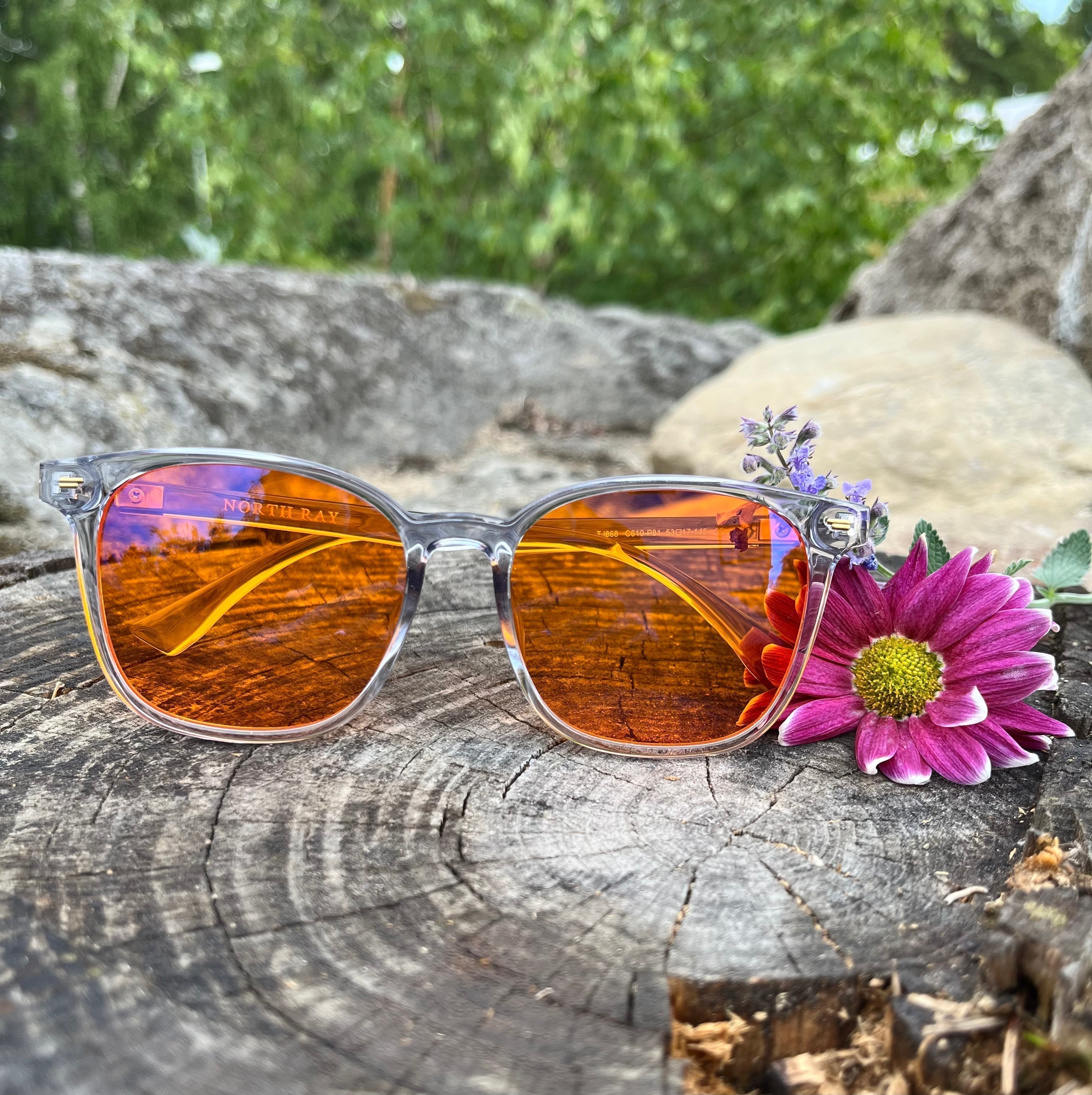There's a lot of talk around us about light; especially blue light and its effects on sleep, alertness, and eye health. But one important part of the light spectrum is often left out of the discussion or at least misunderstood: UV light.
UV radiation is often associated with warnings, sunscreens and overexposure. And while caution is warranted, in reality UV rays are vital to us. At the right time and in the right amount.
UV is not the enemy. It is the body's internal clock's best friend
The first burst of light in the morning, natural sunlight, which also contains UV radiation, is one of the most effective ways to start the body's internal clock. It not only helps you wake up, but also tunes your entire body into the rhythm of the day.
Light affects the body through the eyes. The light-sensing cells in the retina respond specifically to UV and blue light and transmit a message to the suprachiasmatic nucleus of the brain, the central nervous system's own internal clock. This small but important area in the hypothalamus regulates, among other things, the sleep-wake rhythm, the production of cortisol and melatonin, body temperature, blood pressure and digestion.
Morning UV radiation naturally increases cortisol. Not as a stress hormone, but as a wake-up call for the body. Morning UV rays also silence melatonin production, so that the body moves from sleep to activity. So the light is not just visible, it acts as a message in the body: a new day is beginning.
Light also affects body chemistry. Morning sunlight supports the production of serotonin, the so-called “feel-good hormone.” Serotonin later serves as a raw material for melatonin. Without morning light, this natural hormone chain is incomplete and the evening can feel more restless.
UV radiation also has a direct effect on the energy production of cells. It stimulates mitochondria, the body's little energy powerhouses, to function more efficiently. This is reflected in practical results such as alertness, ease of concentration and general vitality. So light is not just something we see. It is something we are .
And yes, vitamin D is produced by UVB radiation, but that's just one part of a bigger picture. Sunlight is more than a source of vitamin D. It's information that the body receives and interprets in thousands of ways.
In modern life, we spend most of our time in artificial light, which is dominated by blue light but completely lacking in UV and infrared. This imbalance in the light spectrum can disrupt the body's rhythm, affect recovery, and impair the natural flow of hormones.
That's why morning light is so important. It's not just a good way to start the day, but a biological message to the body: a new day is beginning .
When can blue light glasses be useful outdoors in some situations?
Blue light blocking glasses are mainly used indoors. Blue light blocking glasses are a great help in the midst of screen time, bright LED lights, and digital life. But in reality, there are many situations where they can be justified outdoors as well.
For some, the light is too much. For those who suffer from migraines, photophobia, or neurological conditions, bright sunlight can be stressful even for a short time. Similarly, for those after eye surgery or living with an eye condition, direct sunlight can cause discomfort or even pain.
In the summer, long periods of outdoor activity, working in the sun or just being in nature can become stressful if your eyes are constantly exposed to bright light. And especially in Finland, where bright summer evenings and nightless nights keep natural light on long into the evening, the light setting can remain on even when the body should already be starting to calm down. In these situations, blue light glasses do not break the connection with nature, but can act as a protection, a calmer and a rhythmicizer. Not limiting life, but supporting it.
Light touches us all in different ways
We humans are different. Some people can withstand a bright summer day without any problems, while others are bothered by the light. One enjoys the rays of the evening sun until late at night, while another needs protection from early evening.
We don't share instructions that would work for everyone and in every situation, because there are none. We share tips and guidelines. We share information, experiences and perspectives on how light can affect the human body and what kinds of things each person could try in their own individual lives to improve their light environment. Everyone picks out from our tips what feels meaningful in their own life. We offer high-quality products with good tips and everyone gets to try them out for themselves to see which moments and needs they serve best.
However, let's remember that there are also many people who have eye diseases, eyes that are sensitive to light, or other special situations and sensitivities. There are those for whom migraines or nervous system sensitivity make light stressful. And there are situations where the body needs less stimulation even outdoors. Although we encourage you to enjoy natural light completely without any eye protection whenever possible, we also remember and respect everyone's individual choices regarding the use of glasses. Let's remember that everyone experiences light differently and what feels gentle to one person may be too much for another.
However, we don't really recommend wearing completely dark sunglasses in any situation (except when welding :D and when treating a possible eye condition). Dark glasses can give the body too strong a signal of darkness, even when it's daylight. If necessary, it's worth choosing lenses that keep the landscape bright and natural so that the light can flow gently, but not too much.
If you can be outside completely without artificial protection in front of your eyes, that's the best. Then you can enjoy, breathe, and let the gentle light come to you gently.
If, however, protection is needed due to an individual situation, that is also completely correct. In that case, you can protect your eyes lightly and, if possible, receive the healing rays of sunlight in small, gentle doses. It is extremely important that everyone finds their own way to feel well. 💛
Blue light glasses as part of peak performance; indoors, outdoors and in situations where every detail counts
Blue light glasses are also used outdoors in demanding conditions and situations where precision and performance are key. Many top athletes and enthusiasts of precision sports rely on contrast-enhancing lenses to block glare, clarify the field of vision and support recovery. When fast reactions, sharp observation or calming the body at the end of the day are required, equipment is chosen that truly supports peak performance. In such sports, experience, expertise and the fact that every detail affects the final result are relied on.
And when these people, with years of experience and their bodies as tools for their work, choose a certain type of lens to use, it's good to remember that they know what they're doing.
We are not here to tell the truth. We are here to offer alternatives.
Light is an important part of our well-being and there is no single right answer to adjusting light conditions. Our blue light glasses can be used indoors, outdoors, at night or during the day, depending on the situation, your mood and your body.
🌿 We want to encourage everyone to listen to their bodies and adjust their light environment individually, taking into account important laws.
🌿 We don't want to set strict limits for anyone, but rather offer amazing opportunities.
🌿 We believe from the bottom of our hearts that everyone knows best what feels right for them and what increases their well-being in their own everyday life.
Psst!
All North Ray blue light glasses also have 100% UV400 protection, meaning they filter out all UV radiation when needed.
Blue light filters are perfectly optimized for different times of the day. You can read more here.


